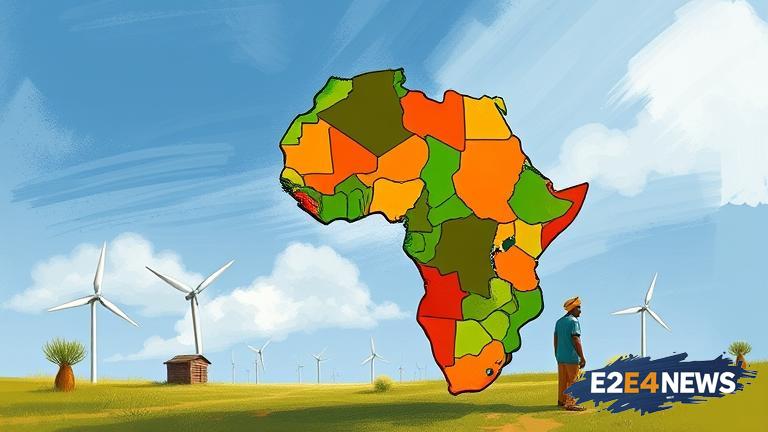The African continent is witnessing a significant shift towards renewable energy, driven by the need to address the pressing issues of energy access, climate change, and sustainable development. With many countries still struggling to provide reliable and affordable electricity to their citizens, renewable energy has emerged as a viable solution. Solar and wind power are leading the charge, with countries like South Africa, Egypt, and Morocco investing heavily in these sectors. The African Union’s ambitious goal of achieving 100% access to electricity by 2030 has further accelerated the adoption of renewable energy. Governments are implementing policies and regulations to support the growth of the renewable energy industry, including tax incentives, feed-in tariffs, and net metering laws. Private sector investment is also pouring in, with companies like Vestas, Siemens Gamesa, and Enel Green Power establishing a presence on the continent. The benefits of renewable energy are numerous, including reduced greenhouse gas emissions, improved air quality, and enhanced energy security. Moreover, renewable energy can create jobs, stimulate local economies, and contribute to poverty reduction. However, challenges persist, including the high upfront costs of renewable energy technologies, lack of infrastructure, and limited access to financing. To overcome these hurdles, international cooperation and knowledge sharing are essential. The European Union, for instance, has launched initiatives like the Africa-EU Renewable Energy Cooperation Program to support the development of renewable energy in Africa. Similarly, the African Development Bank has established the Sustainable Energy Fund for Africa to provide financing for renewable energy projects. As the continent continues to urbanize and industrialize, the demand for energy is expected to surge, making it imperative to adopt sustainable and environmentally friendly energy solutions. Renewable energy can play a crucial role in powering Africa’s growth, while minimizing its carbon footprint. The potential for renewable energy in Africa is vast, with the International Renewable Energy Agency (IRENA) estimating that the continent could generate up to 22% of its electricity from solar and wind power by 2030. To realize this potential, it is essential to develop the necessary infrastructure, including transmission lines, distribution networks, and energy storage systems. Furthermore, there is a need to enhance regional cooperation and develop a unified energy market, allowing countries to share resources and expertise. The private sector must also be encouraged to invest in renewable energy, through incentives and innovative financing mechanisms. As Africa’s renewable energy revolution gains momentum, it is likely to have far-reaching impacts on the continent’s economic, social, and environmental landscape. With the right policies, investments, and partnerships in place, Africa can emerge as a global leader in the transition to a low-carbon economy. The journey ahead will be challenging, but the rewards will be substantial, including a more sustainable, equitable, and prosperous future for all Africans. In conclusion, Africa’s renewable energy revolution is a story of hope and opportunity, with the potential to transform the continent’s energy landscape and contribute to a more sustainable world. The time to act is now, and the benefits of renewable energy must be harnessed to power Africa’s growth and development. By working together, we can create a brighter future for Africa and for the planet.





